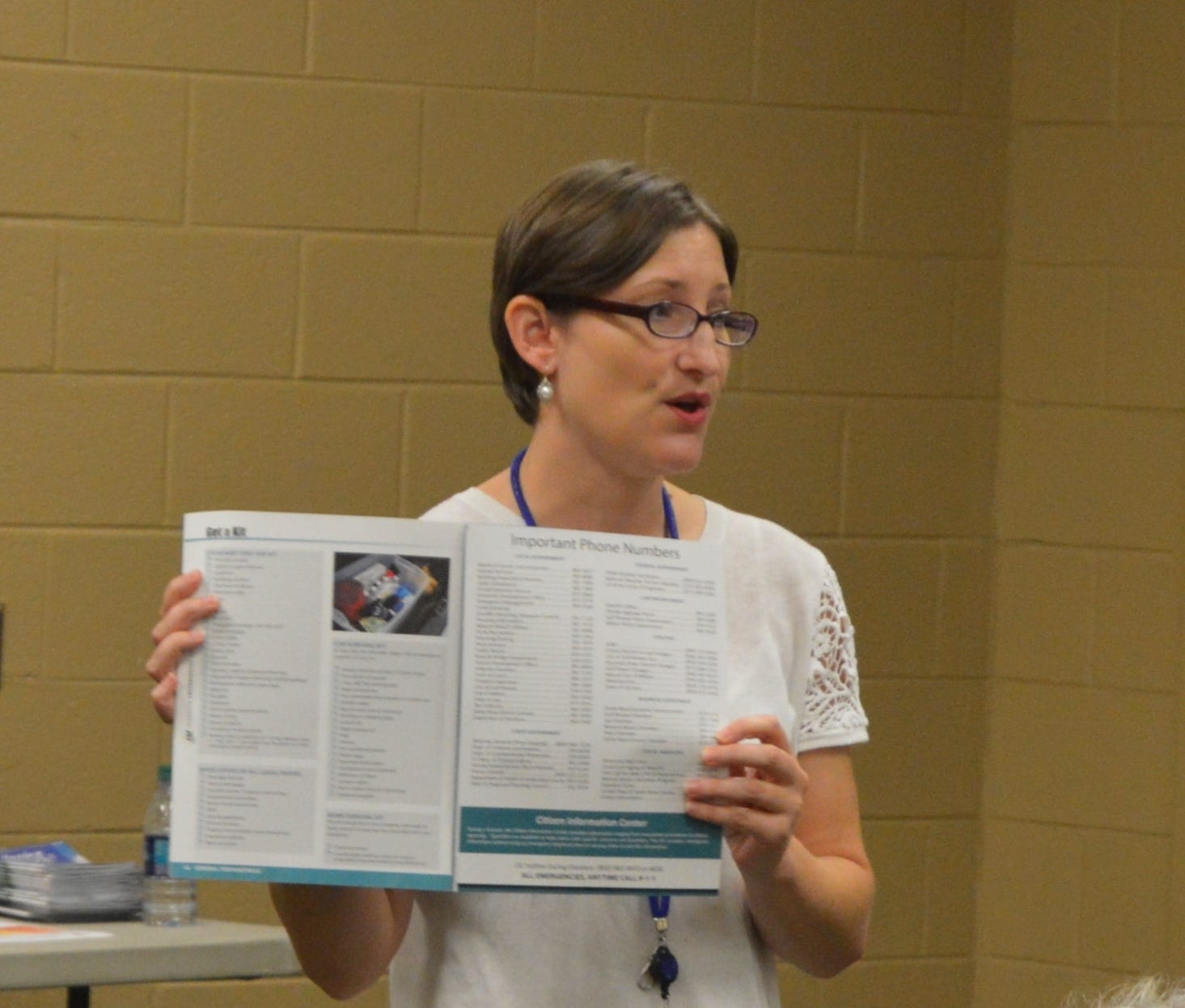
MILTON — Santa Rosa County Emergency Management, in partnership with the Retired and Senior Volunteer Program at the Guy Thompson Community Center, want to make sure seniors are prepared during this hurricane season.
Ginny Palmer, the Emergency Management Programs Specialist with SRC Division of Emergency Management, was the guest speaker during this week’s ‘lunch and learn’ at the community center.
Palmer told senior citizen attendees what they should do when preparing for an incoming tropical storm or hurricane.
Tips include:
1. Make an emergency kit. Seniors are encouraged to have an emergency kit ready in advance including medication, important documents, snacks, additional clothing, battery-operated radio, toiletries, blankets and pillows, etc.
2. Make plans for pets. “Make a plan ahead of time for what you going to do with your pet,” Palmer said. In addition to looking into pet-friendly shelters, Palmer said some pet board and grooming businesses in our area will offer shelter during an upcoming storm.
3. Prepare in advance. “(Don’t) wait until the last minute,” Palmer said. “If you are going to (evacuate), leave at least 72 hours ahead of time.” Palmer suggests not waiting to leave 24 hours before a storm makes landfall.
“If you wait 24 hours before it comes, you are probably going to get stuck sitting in traffic,” she said. “That is when everybody else is thinking about leaving.”
4. Find a location ahead of time. Palmer said seniors who evacuate should know where they are going ahead of time, whether staying with a friend, family member or at a hotel or shelter.
“The longer you wait the more limited your options become,” she said.
Palmer also reminds evacuees to let friends and family members know where they are leaving along with providing them with contact information.
5. Advice for returning home. After the storm has made and fall and is no longer a threat, Palmer said evacuees should pay attention to news outlets when returning.
“Roads may be blocked with debris in the way,” she said.
Palmer suggests contacting a neighbor in advance of returning to know the condition of their home before arriving.
6. What to do when staying for the storm? For those unable or unwilling to evacuate for a storm, Palmer still suggests staying at a local shelter even though it means leaving the comfort of your home.
“Sometimes our homes are not the safest place to be,” she said.
Palmer said transportation is available through the department’s special needs program.
“If you don’t qualify for the special needs shelter, we can still provide you transportation to the general shelter,” she said.
This article originally appeared on Santa Rosa Press Gazette: 6 storm preparation tips for seniors
